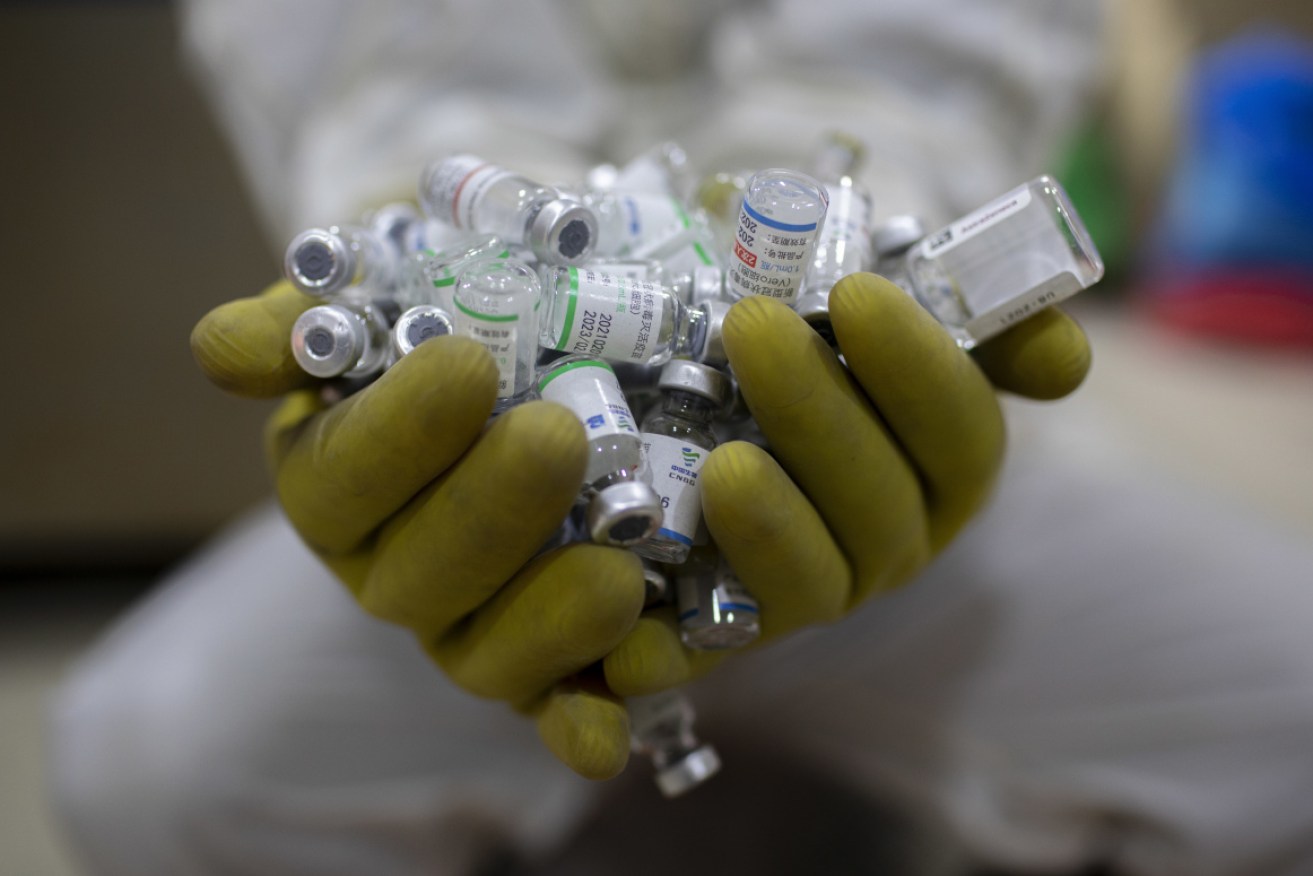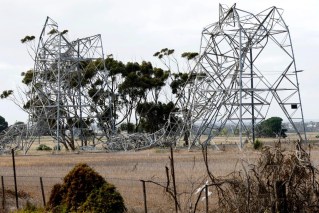WHO warns that piles of COVID-19 waste threaten health

The COVID-19 pandemic has created tens of thousands of tonnes of medical waste, a WHO report says. Photo: EPA
Discarded syringes, used tests and old vaccine bottles from the COVID-19 pandemic have piled up to create tens of thousands of tonnes of medical waste, threatening human health and the environment, the World Health Organisation says.
The material, a portion of which could be infectious since coronavirus can survive on surfaces, potentially exposes health workers to burns, needle-stick injuries and disease-causing germs, a WHO report released on Tuesday says.
Communities close to poorly managed landfills can also be affected through contaminated air from burning waste, poor water quality or disease-carrying pests, the report added.
It calls for reform and investment including through the reduction in the use of packaging that has caused a rush for plastic and the use of protective gear made from reusable and recyclable materials.
The #COVID19 pandemic has generated extra tonnes of waste & exposed cracks in waste management, everywhere.
Waste must be reduced & managed safely, for the health of both people & the environment https://t.co/JsYeqvl7G6 pic.twitter.com/UfI0GRjBD1— World Health Organization (WHO) (@WHO) February 1, 2022
The WHO report estimates some 87,000 tonnes of personal protective equipment (PPE), or the equivalent of the weight of several hundred blue whales, has been ordered via a UN portal up until November 2021 – most of which is thought to have ended up as waste.
The report also mentions some 140 million test kits with a potential to generate 2600 tonnes of mostly plastic rubbish and enough chemical waste to fill one-third of an Olympic swimming pool.
In addition, it estimates that some eight billion vaccine doses administered globally have produced an additional 144,000 tonnes of waste in the form of glass vials, syringes, needles, and safety boxes.
The WHO report did not name specific examples of where the most egregious build-ups occurred but referred to challenges such as the limited official waste treatment and disposal in rural India as well as large volumes of faecal sludge from quarantine facilities in Madagascar.
Even before the pandemic, around a third of healthcare facilities were not equipped to handle existing waste loads, the WHO said.
That was as high as 60 per cent in poor countries, it said.
-Reuters








